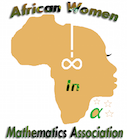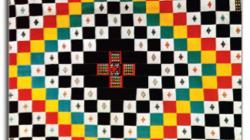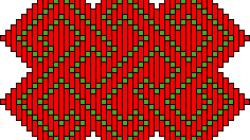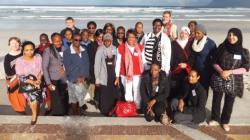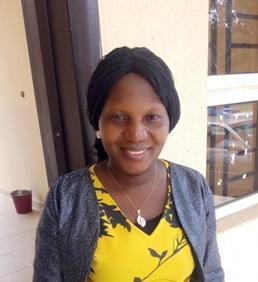
I established the Fadipe-Joseph Prize in Mathematics for the female student in Junior Secondary Schools
Education
- 2005 : Ph. D. Mathematics, University of Ilorin, Ilorin, Nigeria
- 1999 : M. Sc. Mathematics, University of Ibadan, Ibadan, Nigeria
- 1995 : B. Sc. Mathematics (First Class Honours), University of Ibadan
Professional experience
- 2001-date: Lecturer. Department of Mathematics, University of Ilorin, Ilorin, Nigeria
- 2014-2015: Senior Lecturer. Department of Mathematics, University, Omu Aran (Sabbatical leave)
- 1997 – 2001: Lecturer. Department of Pure and Applied Mathematics, Akintola University of Technology, Ogbomoso
- 1995 – 1996: National Vocational Academy, (NAVAC), Abiriba, (National Youth Service Corps).
Honours and prizes
(i) Prize for the best lecturer in the Department of Physical Sciences, Mathematics Programme, Landmark University, Omu Aran (2015).
(ii) Staff Development Award, University of Ilorin, Nigeria (2004-2005).
(iii) First of all First Class (Honours) in Mathematics, University of Ibadan, Nigeria (1995).
(iv) The Adekunle Kukoyi Prize in Mathematics, University of Ibadan, Nigeria (1995).
(v) Prize for the best overall student, Department of Mathematics, University of Ibadan, Nigeria (1995).
(vi) Prize for the best overall student, Ogbomoso High School, Ogbomoso, Nigeria (1988).
Questionnaire
Your story with mathematics
Can you tell us something about your story? Why did you join the field of Mathematics?
I had wanted to be a teacher from primary school because my parents were teachers. As I grew up, I preferred to engage in teaching and researching in Mathematics.
What fascinates you about Mathematics?
I love calculations at the elementary stage and I feel bored if there are no figures to play with in documents
Has anyone influenced your decision to become a mathematician and how?
My parents influenced me to become a mathematician. My father taught me Arithmetic after school hours, so I have a good background in Mathematics.
Has anyone supported you in your choice and during your career?
Yes, my parents and a teacher at high school.
Were there any specific factors that helped you succeed? Would you see it was easy for you to enter your field, and ultimately excel?
Encouragement from parents and a conducive environment. It was not so easy as a woman since I was always a minority in the class of men.
What is the funniest or most memorable thing that has happened to you while working in mathematics?
Some people look at women as weaker vessels but I have proved them wrong by my achievements. For example, I graduated with first class honors from University of Ibadan, the first University in Nigeria
Career and Family
Do you come from an academic family? How does your family regard your career choice?
Yes, my parents were teachers. My family regards my career as the best I can be.
Is it hard to manage both career and private life?
With determination one can manage both career and private life.
Do you have kids? Tell us about balancing family life with work life?
I have three children. I plan my time properly so that the family life and work life do not suffer. Occasionally, my children stay with me in the office after their school hours when they were very young.
Women and Mathematics
What were the biggest obstacles you had to overcome? Were you able to overcome these?
The biggest obstacle I had was the burden of combining work life with family life especially when I was nursing children. It would be easier if I were a male. I was able to overcome the obstacle because of the support from my parents and spouse.
Did you encounter any specific difficulties relating to the field of mathematics?
Yes, availability of resources and lack of mentors
Tell us about the organizations for women mathematicians that you are a part of? How has this helped your career?
- Ambassador, International Mathematical Union, Committee for Women in Mathematics Commissioner (West Africa),
- Africa Mathematical Union – African Women in Mathematics
- Nigerian Women in Mathematics
- African Women in Mathematics Association
As a member of these organizations for women in mathematics, I have opportunity of interacting with other women in Mathematics.
Do you consider it necessary to organize special programs like Girl’s Day promoting mathematics for girls in schools? What else, do you think, could further be done to support woman with mathematics as their career?
I give endowment fund: Fadipe-Joseph Prize in Mathematics for the best female student in Junior Secondary School 3 in two high schools. Also, I organize and coordinate Mathematics Club in a College. This is to encourage girls. There should be funding opportunities for women and girls in mathematics. There should be age benefit for women with children when applying for any support.
Teaching mathematics, especially to non-mathematicians, can be a challenge. What is your strategy to catch and keep the attention of your audience?
I relate teaching with what the audience see daily. That is, from known to unknown.
How would you explain your research to a layman (non-specialist)?
Using mathematics to identify the strategies of solving physical problems. Can you tell us about the applications of your research, if any?
I research in Complex Analysis (Geometric Function Theory) and Functional Analysis (Operator Algebra). The research areas have applications in dynamics.
Conclusion
What are your biggest achievements, and what your biggest failures?
Presently, I serve as a role model to many girls and women. This is what I lacked as I was growing up as a mathematician. At times I am incapacitated as a woman. I have successfully supervised eight female students out of nineteen students at the postgraduate level. I have publications in reputable local, national and international journals.
Do you have a dream? Any particular problem you dream to solve now?
Yes, I have a dream of using Mathematics to solve physical problems. I want to have a research breakthrough by solving a problem that has not been solved. Also, I want the number of female mathematicians to increase.
Which advice would you give to young girls who want to engage a career in mathematics? Or If you had the option to give advice to a younger version of yourself, what would that be?
A young girl who wants to engage a career in mathematics should not allow any discouragement. Also, they should make a right choice of spouse because the choice of spouse in a career cannot be underrated.
